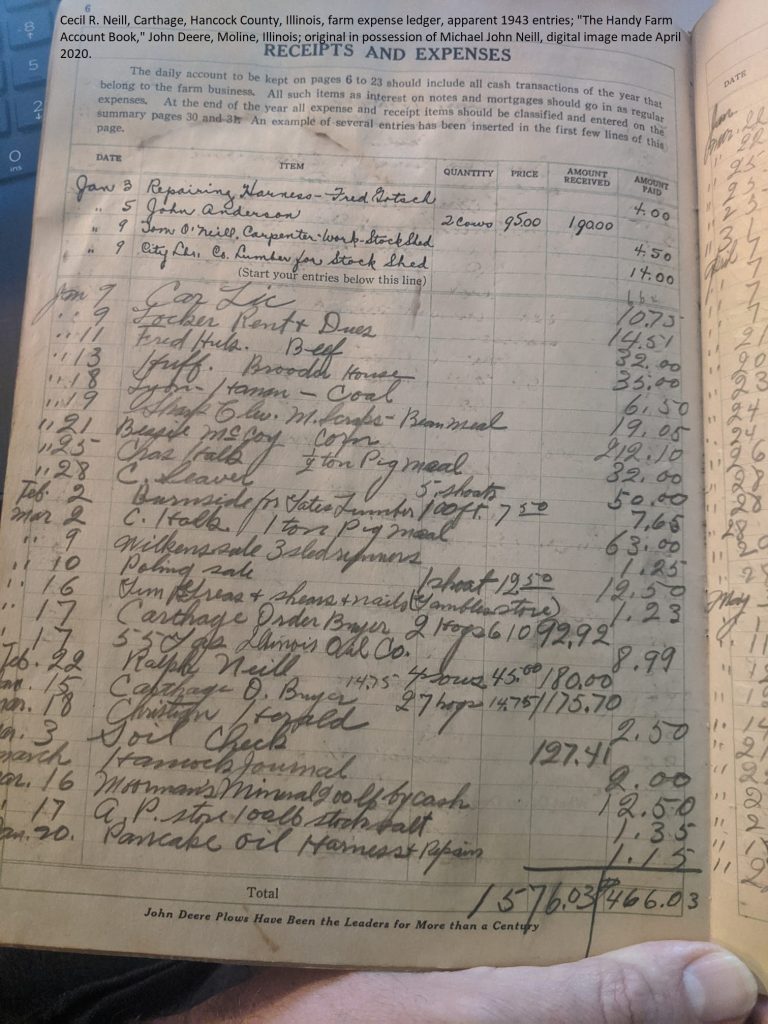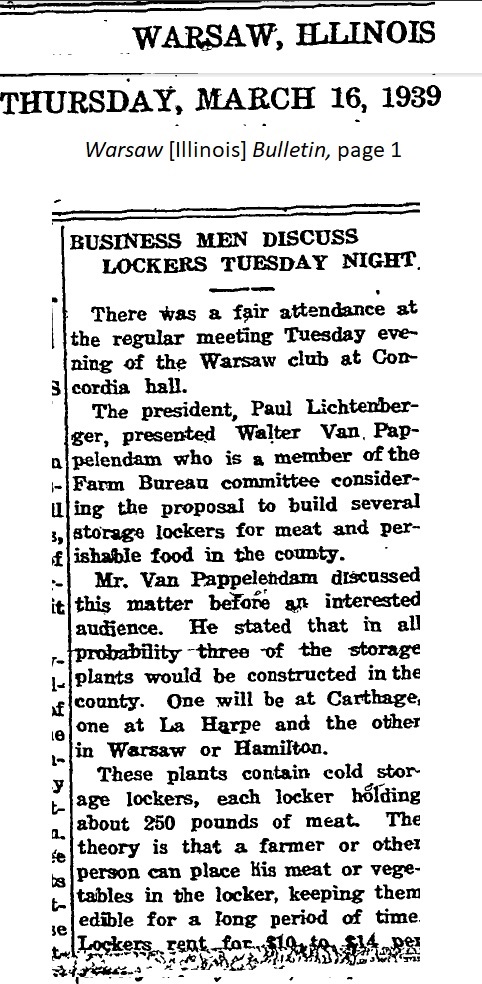
The ledger of my Grandfather Neill’s farm expenses only covers a few years in the early 1940s. Aside from the initial novelty of World War II era prices, it’s an interesting insight into his life.
Transcribing it when I get to that point will be a slight challenge. However I do have some advantages. I won’t be transcribing this based solely on the handwriting. There are some advantages that I have.
I can read cursive.
I know something about farm life. No matter how neat the handwriting in a document may be, having a working knowledge of the occupation and time period in which the document was created helps to understand that document. I know the mash is to feed the chickens and that what may look like a “shirt” is actually a “shoat.”
The time period is not all that far from my own existence. Twenty-five years later I came into existence. The ledger does not pre-date my lifespan by all that much.
I’m familiar with the area. My grandparents lived one-half a mile from where I lived until I was in my early twenties. I know the names of all the little towns in the area. Many of the businesses Grandpa mentioned were will around when I was growing up. My own parents farmed as well and frequented some of the same businesses. Some of the individuals referenced were still living when I was a child and their names were ones that I heard. That knowledge helps when transcribing.

“Locker rent and dues.” That certainly is not a locker at any sort of fitness center. It’s likely a reference to the “locker plat” that was in Carthage, Illinois, and that was referenced as in the planning stages in a March 1939 article in the Warsaw Bulletin. The article stated that the rent at the Carthage facility would be between $10 and $14 a year. Grandpa indicated that in 1943 he paid $14.51 in “rent and dues.”
Of course not everyone can have this knowledge and I certainly don’t have that same level of knowledge when transcribing a document from Massachusetts in the 1750s. That’s something I have to remember when transcribing something created in a time period and a place with which I am unfamiliar. There is a learning curve. Google can help, but it only helps so much.
And the abbreviations. Those can be an entirely separate challenge all by themselves. The best advice is to wait until you have transcribed the entire to determine the ones that do not immediately come to you. Later references may make their intent a little more clear.
Joyce Lesich says:
I am thoroughly enjoying your previous posts. While reading “Thoughts On A 1943 Farm Ledger”, you indicated that Google would be a good place to search unfamiliar words. I knew that (?) but never made the connection. My 4Xgreat-grandfather’s inventory of assets, while filing for his Revolutionary War Pension listed a “piggin”. Never knew what it was & now I do. Thanks for this advice and all the other great tips.
mjnrootdig says:
I’m glad you are enjoying them and thanks for reading. Google is a good place to start–but as you may have found out, it won’t find everything, but many words from these inventories have been posted elsewhere by others.